Steph W. from SEOPressor


...help you check your website and tell you exactly how to rank higher?


75
score %
SEO Score

Found us from search engine?
We rank high, you can too.
SEOPressor helps you to optimize your on-page SEO for higher & improved search ranking.
By vivian on September 10, 2015

Every business that markets their brand online knows how hard it is to please Google. There was a time when the God of Internet demands only simple offerings – feed me backlink and keywords, and thou shall rank high in my kingdom. Yet Google gets harder and harder to please by the year. It seems like the more you try to please Google, the more it will fight back. New algorithms, practices and penalties are installed to counter the efforts done to achieve high ranking in its search engine which begs the question – does Google hate SEO?
We understand that this happens because Google doesn’t want us taking advantage of manipulative tactics in order to boost our search engine rankings – they want our search engine ranking to come naturally. However, you are practically forced to use SEO in order to stand out from the millions of other websites out there and to get Google’s attention. It’s a catch-22 of sorts.
To truly understand why you need to implement SEO into your online marketing strategy, you need to understand what Google’s ultimate goal is. And that goal is to provide users with the most accurate and relevant results to their search queries. This is a lot easier said than done, which is why Google constantly updates its algorithm in order to better identify content around the web that is both relevant and of high quality.
Google rewards the best content by providing it with higher search engine rankings. The higher the ranking, the more likely it is to be viewed by users. The problem is that even if you post incredibly high quality content that is relevant to thousands of user queries, there’s no guarantee that Google will be able to identify your content as such due to the factors it uses in order to determine search engine rankings, which include the following:
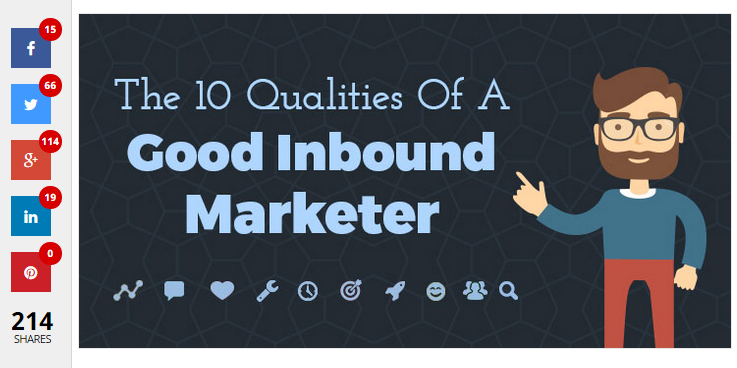
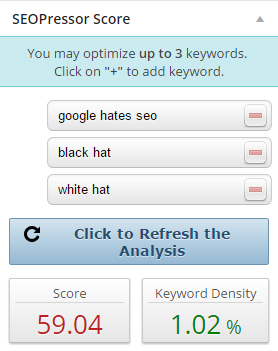
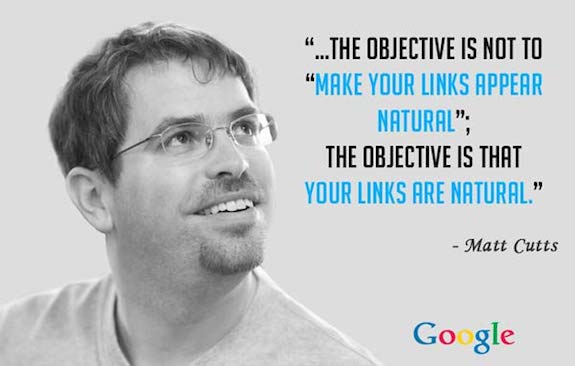
Google wants your ranking signals to come naturally, not inflated artificially.
Now, Google wants these factors to come naturally. They assume that if you are writing good, relevant content, that SEO keywords will appear naturally within the context of your content. These keywords will help visitors find your content – and these visitors will then share your content to their social media pages. Both the use of keywords and the social signals will make other websites aware of the content, which will lead to inbound links. If only it was as easy as this.
Here’s the thing about how Google identifies and ranks good, relevant content. You have to stand up in order to be noticed. While your contents might already contain the necessary signals Google needs to be ranked highly, it might not be strong enough and can still be optimized.This is because Google doesn’t rate your contents through human beings. They use certain algorithms to pick these ranking signals up, and despite being exceptionally good, they are not perfect.
After creating a good content, you have to optimize them to make it easier for Google to crawl and understand your content. This includes using strong, unique and relevant keywords throughout your content, from the titles of your content to the meta descriptions and meta tags and more. A good but unoptimized content is like a gold nugget buried deep underground. The more you optimize it, the closer you bring it to the surface to be discovered.

Basically what SEO does.
What you’re doing is the equivalent of standing up from the crowd with a big sign in your hand identifying yourself. While the use of SEO optimization can help you to boost your web traffic, you’ll need to regularly promote your content on social media in order to obtain more social shares and inbound links, two of the other factors that Google puts a lot of emphasis on when judging your content.
So now you’re wondering, what’s the problem with this? The problem is that some SEOs familiarize themselves with the ins and outs of Google’s algorithm in order to exploit the system. They find ways to circumvent the need to focus on creating good or relevant content and instead, focusing more on artificially increasing the signals that Google uses to rank content highly. This is what is known as black hat SEO.
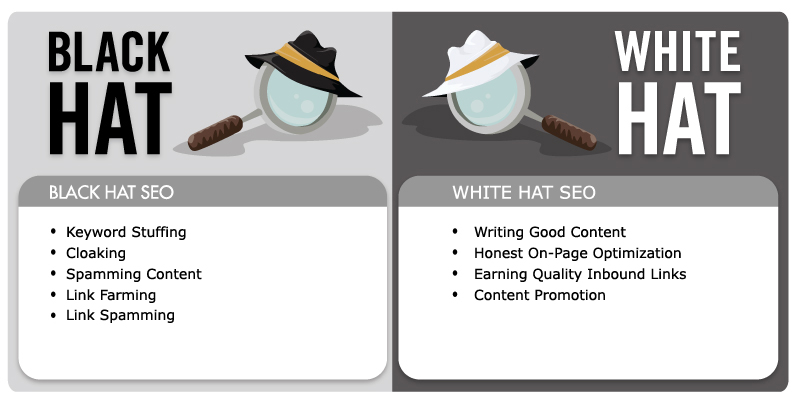
So basically, they are focusing on getting high rankings and not on creating good content. This is the last thing that Google wants since this will result in poor, irrelevant content appearing on users’ search queries. When a user’s search reveals poor content, it reflects badly on Google. While they are the most popular search engine in the world, they’re not the only search engine in town. Poor quality search results can hurt their reputation and could cause their competition to get a foothold.
Keeping this in mind, Google regularly updates its algorithm in order to try and limit poor content that was ranked because of black hat SEO. Google will also punish websites that it catches practicing black hat tactics by demoting their ranking or, in severe cases, removing them from their search engine altogether.

The famous Google Panda update is one of the main effort done by Google to flush out black hat SEO.
Black hat tactics usually come about when all you care about is improving your website’s ranking through exploiting Google’s algorithm, which as a result causes you to ignore your site’s user experience. Although not everyone practices black hat SEO, it can be a bit difficult for Google to differentiate between black or white hat SEO. Their algorithm change might impact both even though aimed at black hats in particular.
Furthermore some SEOs mixes both black hat and white hat techniques, commonly referred to as gray hats. This makes it even harder for Google to draw the line between what should be allowed and what shouldn’t. In other words, it’s more jobs piling up into Google’s plate.
Thankfully in return, Google have been successful in rounding up quite a number of black hat practices over the years, not only rendering them ineffective, but also punishing them in form of ranking penalties and even bans. The following are a few of the common strategies that Google has deemed as being “black hat.”
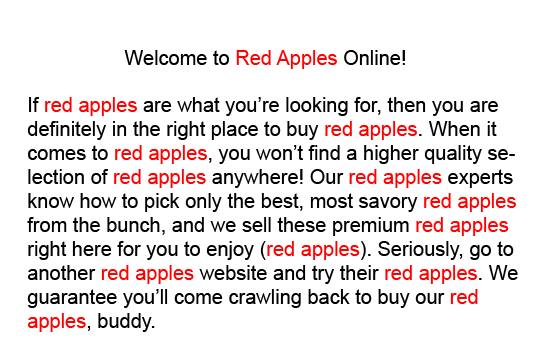
On the other hand, white hat SEO influences webmasters to follow best practices in order to give their websites the best shot at not only getting ranked, but to actually satisfy user needs. This allows the overall quality of contents on the web to rise exponentially – so much in fact, that even “good, unique contents” just won’t cut it anymore.
You have to be exceptional, or as Moz put it – create 10x contents.
Following SEO guidelines that teaches how to increase content quality, improve user experience and making it easy for Google to understand our website can really help Google to achieve their main goal – delivering the best results to their users. Website owners get ranked, Google gets to serve their users better. It’s a win-win situation!
The following are SEO strategies that’s going to brighten Google’s day:
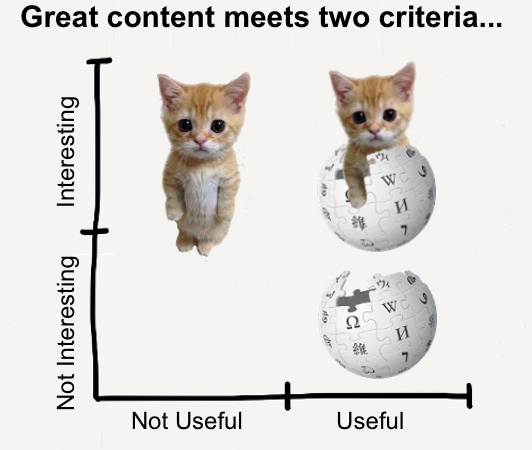
There’s a thin line between white hat and black hat tactics when it comes to SEO. Google hates the use of black hat SEO, but this will always be around as long as SEO in general will be around. You should avoid using black hat SEO since this can result in harsh penalties. Not to mention that sticking to what Google wants is better for you in the long run.
| We try to make it so that you don’t have to do SEO, and we still find the good content. Of course, if you’re willing to put a little bit of time into just making sure that your content is accessible, and useful, all those things, that absolutely can help. – Matt Cutts |
|---|
The thing is, even though Google’s ideal vision is for everyone to not having to do SEO in order to get their contents discovered, until Google can perfect their algorithms to truly recognize good contents without needing to rely on manipulatable signals, SEO is going to remain important in online marketing.
Although not perfect, Google still strive to return your good contents to those who needs them. The least you can do on your side is to help Google to help you.
Updated: 11 July 2025


Save thousands of dollars (it’s 100x cheaper)

Zero risk of Google penalty (it’s Google-approved)

Boost your rankings (proven by case studies)
Rank High With This Link Strategy
Precise, Simplified, Fast Internal Linking.
